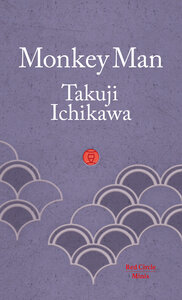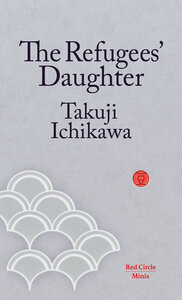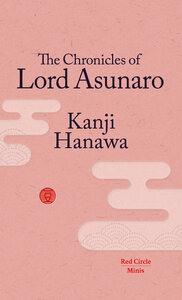Let’s start the year by catching up with Red Circle Minis, the series of short Japanese books which are published straight into in English translation. My previous reviews of this series are here and here.
One Love Chigusa by Soji Shimada
Translated by David Warren
One Love Chigusa is the longest Red Circle Mini to date, written by Soji Shimada (whose locked-room mystery Murder in the Crooked House I enjoyed previously) and translated by David Warren, a former British Ambassador to Japan.
Beijing, 2091: 25-year-old Xie Hoyu is severely injured in a road accident. Technology is advanced enough to repair his body and memories, but he’s as much machine as flesh, if not more. Xie finds he’s lost interest in life, and his perception has also changed: in particular, women all seem to have the snarling red faces of demons.
One day, Xie notices a beautiful woman whose face appears human. He feels that she gives him reason to live, and becomes obsessed with her. He learns that her name is Chigusa, and asks to go out with her – but something isn’t quite right.
One Love Chigusa paints in broad narrative strokes, and Xie’s obsessive behaviour is difficult to take to. But the story asks questions about the nature of humanity that I found compelling in the end.
Monkey Man by Takuji Ichikawa
Translated by Lisa and Daniel Lilley
In this story, a hacker group called Arlecchino works to expose The Complex, the vast organisation responsible for many of the world’s ills. One of Arlecchino’s operatives is Monkey Man, a masked figure with preternatural agility. He’s among the number of young people who are developing remarkable abilities. Our protagonist, Yuri, is another: she has healing powers. She’s also about to discover that Arlecchino are closer to home than she imagines.
Takuji Ichikawa writes in his afterword that Monkey Man is a companion piece to The Refugees’ Daughter, his previous entry in the Red Circle Minis series. Both are about young people saving the world, and they’re deliberately broad-brush, heightened and idealistic.
So I think it’s important to accept Monkey Man for what it is in order to enjoy it properly – and it’s a fun romp that wears its heart on its sleeve. Part of Monkey Man‘s message is that the world could do with a bit more idealism. It makes the case persuasively.




Recent Comments